By Imam Shamsi Ali, Director of Jamaica Muslim Center, United States
Ramadan, the blessed month of fasting, is approaching. Muslims are all aware that Ramadan is a month of multiple blessings (barokaat), mercy (rahmah), magfirah (forgiveness), and many more. Certainly it is the month of fasting and many types of obedience (to’aat).
Muslims worldwide anticipate this month with joy and sweetness in their hearts. It is if they would anticipate the arrival of an important guest that will bring them many valuable gifts.
It is a consensus among the Ummah that fasting is obligatory upon all Muslims fulfilling the requirements of its obligation.
Also Read: Fryday Sermon: Hijrah in the Struggle for the Liberation of Al-Aqsa and Palestine
Allah the Almighty said: “O you who believe! Observing the fasting is prescribed for you as it was prescribed for those before you, so that you may become pious” (Al-Baqara: 183).
In this verse of the Holy Quran Allah emphasizes several important points:
First, iman (faith) is the foundation of that fasting. Although Ramadan involves some social and cultural related activities, such as food, fasting is surely an act of faith. Only those believers can respond to this heavenly call from Allah the Almighty to observe fasting.
Second, fasting has been prescribed (kutiba or written) in the “Lauhul Mahfudz” for as long as the beginning of human creation. Allah uses the word “kutiba” in past tense which means “has been written” to indicate that it’s not only for Muhammad and his followers, but also for those before them. This is affirmed by Allah’s statement: “as it was prescribed to those before you”.
Also Read: Sadaqah, A Simple Act with Extraordinary Virtues: Dr. Wahyudi KS
Third, the object in this verse is SAUM (fasting) which means to “to restrain, to abstain”. This is a clear point that the essence of fasting is to “restrain from something”. Surely it means to abstain from all things that displease Allah the Almighty. Avoidance of food, drink and sexual activities are but symbols of objects to abstain from.
Fourth, the objective of the fast is to achieve that state of taqwa (God fearing, righteousness, and other meanings). The word “la’alla” in this verse indicates that by simply avoiding food or drink a person is not guaranteed to fast. The word indicates that fasting is in need of commitment, struggle and sacrifices.
Fasting is also considered one of the five pillars of Islam. The Prophet said: “Islam is founded on five pillars; testifying that there is no God worthy of worship but Allah and testifying that the Prophet Muhammad is His Messenger, observing five times daily prayers, giving charity, fasting in Ramadan, and performing pilgrimage to the House of Allah for those who are able to do it”.
Some objectives of fasting
Also Read: The Dynamics of Living in a Muslim Community in the Modern Era
There are many objectives of observing fasting in Ramadan. But I would like to emphasize five objectives that we all hope to achieve during this fasting month.
First, Ramadan is the most effective time to cleanse our souls and hearts. That is because fasting is a very personal and intimate connection with Allah. This is an act of worship that involves no one but the fasting person and His lord.
And for this very reason Allah claims fasting to be His. He said in a hadith Al-Qudsi: “All acts of Bani Adam (people) belong to them except fasting. Indeed fasting belongs to me and I do reward the fasting person directly”.
Second, Ramadan is well known as the month of Al-Qur’an: “The month of Ramadan in which the Holy Qur’an was revealed…”. And so it’s essential that all Muslims use the month to get connected with the Holy Qur’an. During the month try to read (if possible complete the whole Quran), learn and understand it, act upon and teach it to others.
Also Read: The Meaning of “Minal Aidin wal Faizin”
Unfortunately, many Muslims know the value of the Holy Qur’an but do not take it seriously. Know, Al-Qur’an is the GPS for our life.
Third, Ramadan is also known as the month of many rituals (ibadaat). For Muslims, these ibadaat are a means to get closer to Allah. For this reason, Allah places a verse between the verses of fasting to tell us how close Allah to us is in the month of Ramadan.
Allah said: “And when my servants asked you (o Muhammad) concerning Me, tell them indeed I am near (to them)….” (Al-Baqarah: 186).
Therefore, it is important for Muslims to utilize the month to get close to Allah as much as possible with all types of rituals Allah had prepared for us.
Also Read: The Atrocities of Zionist Israel During Ramadan
Fourth, the month of Ramadan also is the most effective time for believers to shape their human and social characters. In fact, in addition to gaining the pleasure (mardhotillah), the objective of all rituals in Islam is to build noble human characters, known as “Al-Akhlaq Al-karimah”.
Fasting therefore is closely connected to moral conduct. The Prophet (pbuh) warns us saying: “there may be a person who fasts but he doesn’t gain anything out of his fast but hunger and thirst”.
Fifth, during the month of Ramadan the believers are distracting themselves from worldly material or physical enjoyment. This is symbolized by the abstinence from food, drink, and sexual activities. Therefore it is a good opportunity for the fasting person to redirect his/her life orientation.
Muslims life orientation is to meet Allah, to enter into His Jannah in Akhirah. Unfortunately because of this worldly and physical life many have become materialistic and forgetful of their real life orientation (akhirah). The month of Ramadan is truly an opportunity for them to refocus their orientation in life. That is an Akhirah oriented life.
Also Read: Imaam Yakhsyallah Explains the Interpretation of Quran Surah Asy-Shura Verses 13-15
These are among the objectives of fasting hopefully to achieve during the month of Ramadan. They are all concluded in the “taqwa” mentioned in the verse of the Quran “la’allakum tattaquun”.
May Allah grant us success in Ramadan so we will be able to achieve those objectives and many more. Amin! (AK/RE1)
Mi’raj News Agency (MINA)
Also Read: Imaam Yakhsyallah Mansur: Mosques Play a Central Role During Ramadhan









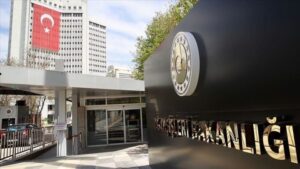

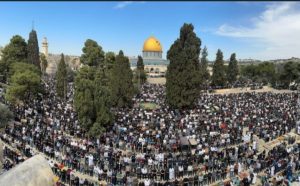

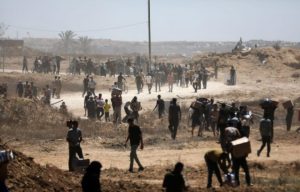
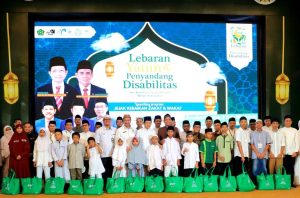




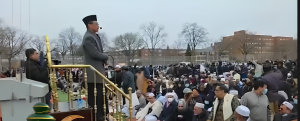

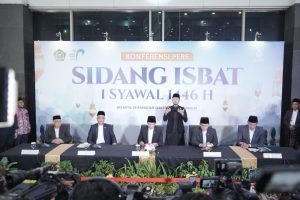




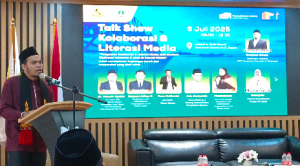
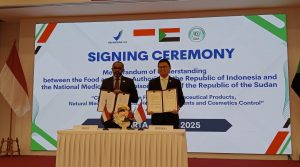


![MUI Chairman for Foreign Relations and International Cooperation, Sudarnoto Abdul Hakim (center) at the One Million Women for Gaza Press Conference entitled "Women Boycott Pro-Israel Products" held at the Swiss-Belinn Cawang Hotel, East Jakarta, Thursday (3/7/2025). [Photo: Arina/MINA]](https://en.minanews.net/wp-content/uploads/2025/07/20250703_144042-scaled-1-300x225.jpg)




 Mina Indonesia
Mina Indonesia Mina Arabic
Mina Arabic